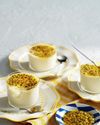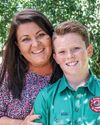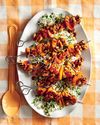
Addiction is not just messy drunks, cokeheads or junkies. The biochemical reality is we can become addicted to many things that are much more subtle and that are so socially acceptable, we’d happily give them to toddler. Our brains operate a biochemical reward system to make us get off our bottoms and do stuff that keeps us alive long enough to produce the next generation. Without it, we wouldn’t get out of bed, we wouldn’t eat even if food was put in front of us, we wouldn’t go to the trouble of meeting other people and certainly wouldn’t bother getting to know them well enough to have children with them. This same system keeps us safe from danger by providing us with the motivation to run away or stand and fight.
Good things
That reward system, however, can be broken. We can like things too much for our own good. I was addicted to sugar. I didn’t know I was addicted to sugar until I wasn’t. Had you asked me at the time, I would have denied it till the cows came home – and then bought a Coke instead of water because it was more ‘fun’. When I compare the way I felt about food before to the way I feel about it now, I definitely was. Sugar pushes exactly the same biochemical buttons in our reward system as cocaine, alcohol, nicotine and many others. Just because the cravings are less intense and it has stayed under the regulatory radar doesn’t mean the biochemistry is any different or it is not addictive.
Bu hikaye The Australian Women's Weekly dergisinin July 2021 sayısından alınmıştır.
Start your 7-day Magzter GOLD free trial to access thousands of curated premium stories, and 9,000+ magazines and newspapers.
Already a subscriber ? Giriş Yap
Bu hikaye The Australian Women's Weekly dergisinin July 2021 sayısından alınmıştır.
Start your 7-day Magzter GOLD free trial to access thousands of curated premium stories, and 9,000+ magazines and newspapers.
Already a subscriber? Giriş Yap

Maggie's kitchen
Maggie Beer's delicious veg patties - perfect for lunch, dinner or a snack - plus a simple nostalgic pudding with fresh passionfruit.

Reclaim your brain
Attention span short? Thoughts foggy? Memory full of gaps? Brigid Moss investigates the latest ways to sharpen your thinking.

The girls from Oz
Melbourne music teacher Judith Curphey challenged the patriarchy when she started Australia's first all-girls choir. Forty years later that bold vision has 6500 members, life-changing programs and a new branch of the sisterhood in Singapore.

One kid can change the world
In 2018, 10-year-old Jack Berne started A Fiver for a Farmer to raise funds for drought relief. He and mum Prue share what happened next.

AFTER THE WAVE
Twenty years ago, the Boxing Day tsunami tore across the Indian Ocean, shredding towns, villages and holiday resorts, and killing hundreds of thousands of people from Indonesia to Africa. Three Australians share their memories of terror, loss and survival with The Weekly.

PATRICIA KARVELAS How childhood tragedy shaped me
Patricia Karvelas hustled hard to chase her dreams, but it wasn't easy. In a deeply personal interview, the ABC host talks about family loss, finding love, battles fought and motherhood.

Ripe for the picking
Buy a kilo or two of fresh Australian apricots because they're at their peak sweetness now and take inspiration from our lush recipe ideas that showcase this divine stone fruit.

Your stars for 2025
The Weekly’s astrologer, Lilith Rocha, reveals what’s in store for your astrological sign in 2025. For your monthly horoscope, turn to page 192.

MEL SCHILLING Cancer made me look at myself differently'
One year on from going public with her bowel cancer diagnosis, Mel Schilling reveals where she's at with her health journey and how it's changed her irrevocably.

Nothing like this Dame Judi
A few weeks before her 90th birthday, the acting legend jumped on a phone call with The Weekly to talk about her extraordinary life – and what’s still to come.